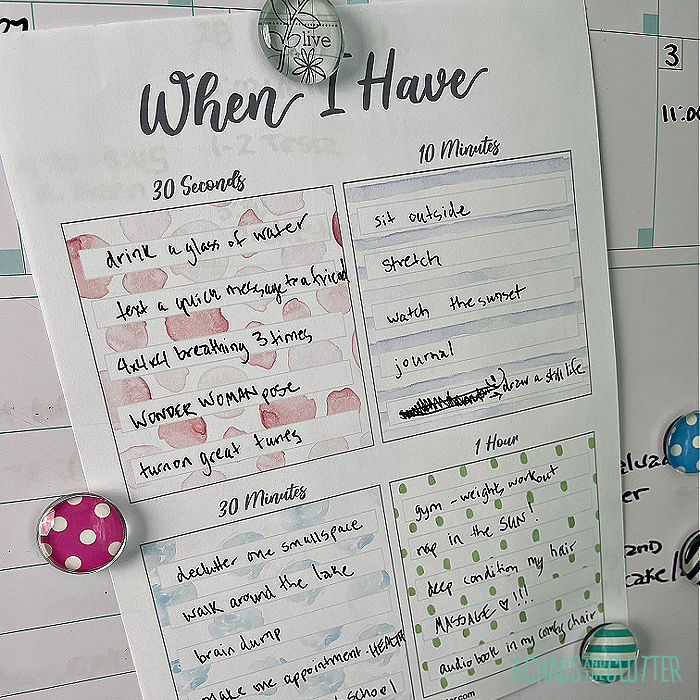Parenting a child who is ill or who has special needs is a difficult job. One of the most important parts of that job is advocacy.
Advocating for your child’s medical, educational or emotional needs is critical in order to get them the best treatment and quality of life possible. Children with a disability or illness need someone in their corner who is able to give them a voice and as their parent, this has to fall to you. Here are TEN important factors in child advocacy:
How to Advocate for Your Child:
Research.
Finding out that your child is sick or having them diagnosed with a disability is overwhelming for any parent. Once you are over the initial feelings of shock, sadness, anger, and helplessness, it is important that you arm yourself with knowledge. Knowledge is power. The feeling of helplessness will lessen if you are doing something to help your child and research is the first step.
Get to know the language surrounding your child’s condition. There is nothing scarier than hearing professionals discuss your child and not being able to understand what they are saying. Learning the vocabulary will not only help you understand them, but will also enable them to share more with you and involve you in your child’s case.
In researching your child’s condition, the internet can be a tool, but it is important to note that not everything you read on the internet is true. Anyone can write anything on the internet. Be sure to cross reference what you learn on the internet with medical journals, books in the library, and with your child’s physician.
Misinformation can be scary, so be sure that what you learn is accurate. Many parents are afraid of what they will find if they research their child’s diagnosis and therefore skip this step, but you cannot advocate effectively for your child unless you understand as much as possible about their condition, the treatment, and anything else that could affect the outcome.
Choose a good doctor.
When our daughter Miss Optimism’s health started to decline a number of years ago, after doing some initial research about her condition, I began searching for the best doctor possible. I asked friends of mine who were nurses. Then asked people who knew people who had children with similar conditions. I asked other doctors. I researched online.
One name kept coming up everywhere and I knew that he was the doctor we wanted in our corner. Now, years later, I have never regretted that decision. My only regret was in not actively looking for the best doctor specializing in her condition sooner. She spent two years with a Specialist who was not the best and who did not truly care, and it caused additional stress in an already stressful situation.
If you are not happy with the quality of care your child is receiving, do not be afraid to look for another physician. Also NEVER BE AFRAID TO ASK FOR A SECOND OPINION!
Ask questions.
Don’t be afraid to ask questions. If there is something in the plan for your child that you do not understand, ask. Ask about side effects of any medications or treatments. Inquire about alternative treatments. Ask about the research behind things and the reasoning behind decisions.
Stay current.
Continue to research as medical breakthroughs are occurring all the time. Stay abreast of the latest research.
One caution here though is to pick and choose which of those you present to your child’s physician. If you are coming into the doctor’s office every week with a new alternative treatment that you want them to try, you will quickly be dismissed.
If, however, you sift carefully through all the information that you uncover and present what you consider to be the very best ideas, you will be given more respect and taken more seriously.
Remember that what works for one child does not always work for another.
Keep important documents with you at all times.
Each child’s situation is unique and the documents will differ, but you should always keep a list of the medications your child is on as well as the dosage for each, important contact information for their physician, emergency contact numbers, and copies of any papers that outline the child’s condition. You may also need to carry things such as insurance papers.
You may not think that you need to carry these lists as you know your child’s medications, but if there were ever to be an accident and you were unconscious while your child were being transported to the hospital, this information could save your child’s life. Also, in situations of extreme distress such as if your child were to stop breathing, it may be impossible for you to remember the dosages of their medications.
In our daughter’s case, I have a letter from her Specialist that I carry with me everywhere. As her condition is rare, I have had to take this letter out several times at the hospital when they were going to release her as they did not understand the seriousness of the condition.
As her mother, I was trying to advocate for her, but doctors tend to assume that parents overreact and were in the habit of not listening to me until her Specialist provided me with this letter. Once I pull that letter out, action is taken immediately and apologies are usually made. Her physician is so highly respected that his name alone carries weight and his instructions are taken very seriously. Having this letter saved our daughter’s life just last year.
We also have a letter that we carry with us when we travel and I carry insurance papers and a list of her medications. I did not used to carry the list of medications, but last year when we had a bad scare, I was so panicked that I could not remember even the most basic things in the Emergency room.
Follow your gut.
Doctors and nurses have years of medical training, but you know your child best. If you know that something is not right, follow your intuition as a parent. If you are turned away or dismissed, continue to pursue it. Many children’s lives have been saved thanks to a parent who followed their instincts. I cannot stress this one enough. You are truly the expert when it comes to your child.
Ask the doctors “what would you do if this were your child?”
When faced with making a decision about treatment options for your child, do as much research as you can, but also ask this question of the people treating your child. Their answer may help you determine what to do.
Never be afraid to stand up for your child.
There is likely no one on this Earth who loves your child as much as you do. Your child needs you in their corner ensuring that all is being done to care for them in the best and most effective way possible. If you are not happy with something, never be afraid to speak up.
The stakes are high. Remember that any parent in your position would fight to see that their child was cared for.
Take care of yourself.
Caring for a sick child or a child with a disability is exhausting and time consuming, all consuming really. If you do not take care of yourself though, you will not be able to take care of your child. If you get run down and sick, things for your child will only get worse.
Give yourself permission to pamper yourself even with little things such as a hot cup of tea. As living under the strain of a chronically ill, terminally ill, disabled, or special needs child is emotionally taxing, consider therapy for yourself.
If therapy is not something you can afford financially or with the time it will require, even just journalling your feelings will help. Acknowledge to yourself that the position you are in is a difficult one and try to make time for things that bring you pleasure.
Our free self-care plan can help you determine which things work best for you. You can complete it and hang it somewhere you will see often. Then even when you have one minute to yourself, you will be reminded of the things you can do in that minute that help refresh you.
Ask for help.
No one should ever do this alone. There may be friends and relatives who are standing by feeling helpless about the situation. People want to help. It will make them feel like they are actually doing something if you give them suggestions.
Ask for people to bring meals to your family, to help with your other children, to do housework, yard work, or anything else that will free up your time and energy to be able to better care for your sick child. If your family is failing financially under the weight of medical expenses, ask someone close to you to organize a fundraiser.
Parenting is a challenging job already but parenting a child with medical needs or other special needs can put too much strain on any family. Ask for help. If you do not have family or friends living close-by, reach out to your church or community agencies and ask what help they may be able to provide.
It may help to send them our suggestions of how to help a family whose child is in the hospital.
Join me for a free 5 part email series, Little Hearts, Big Worries offering resources and hope for parents.

